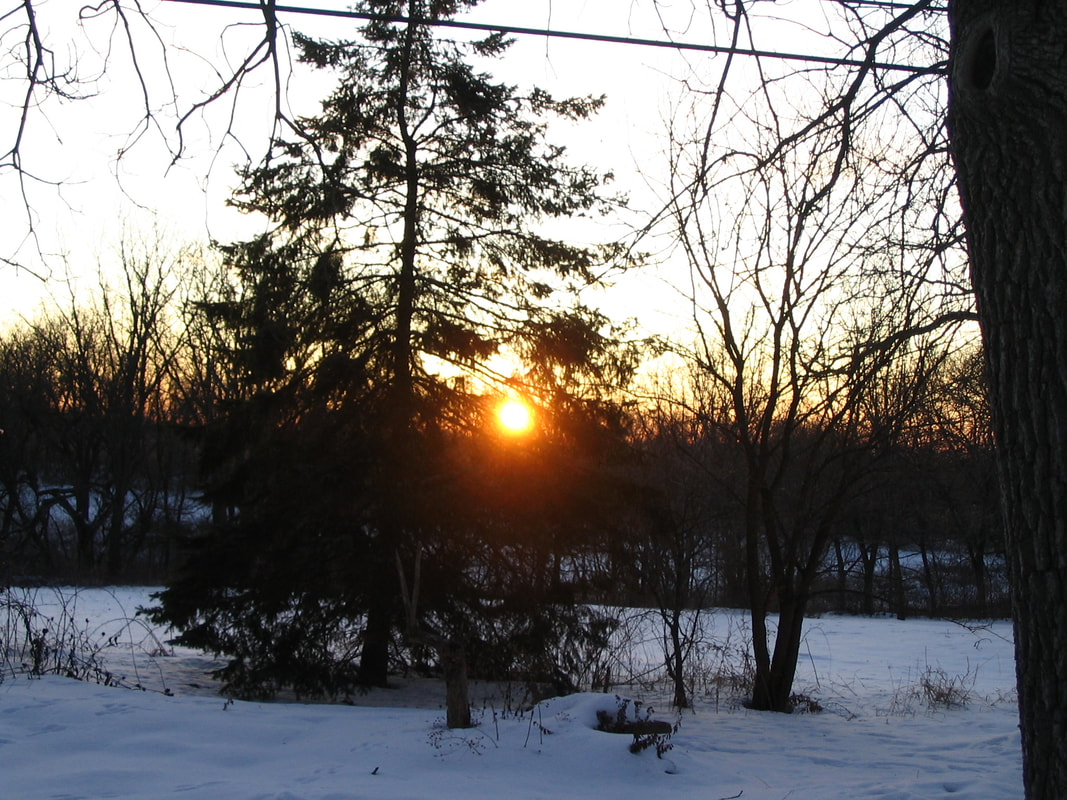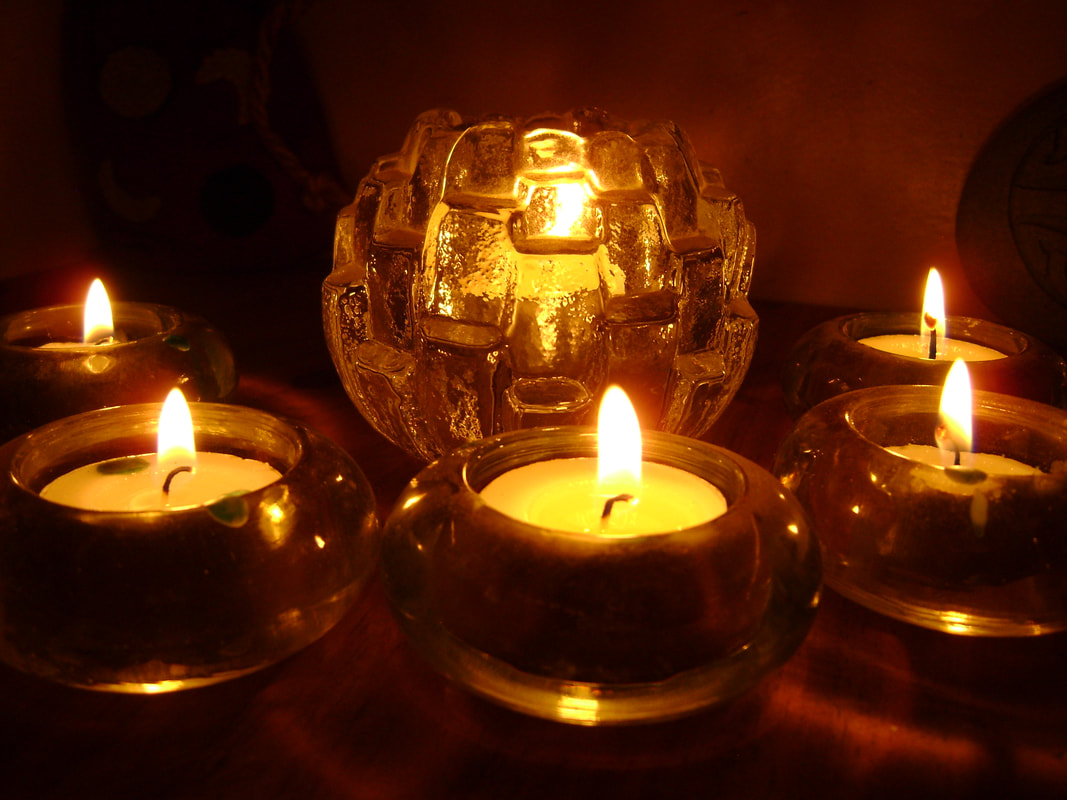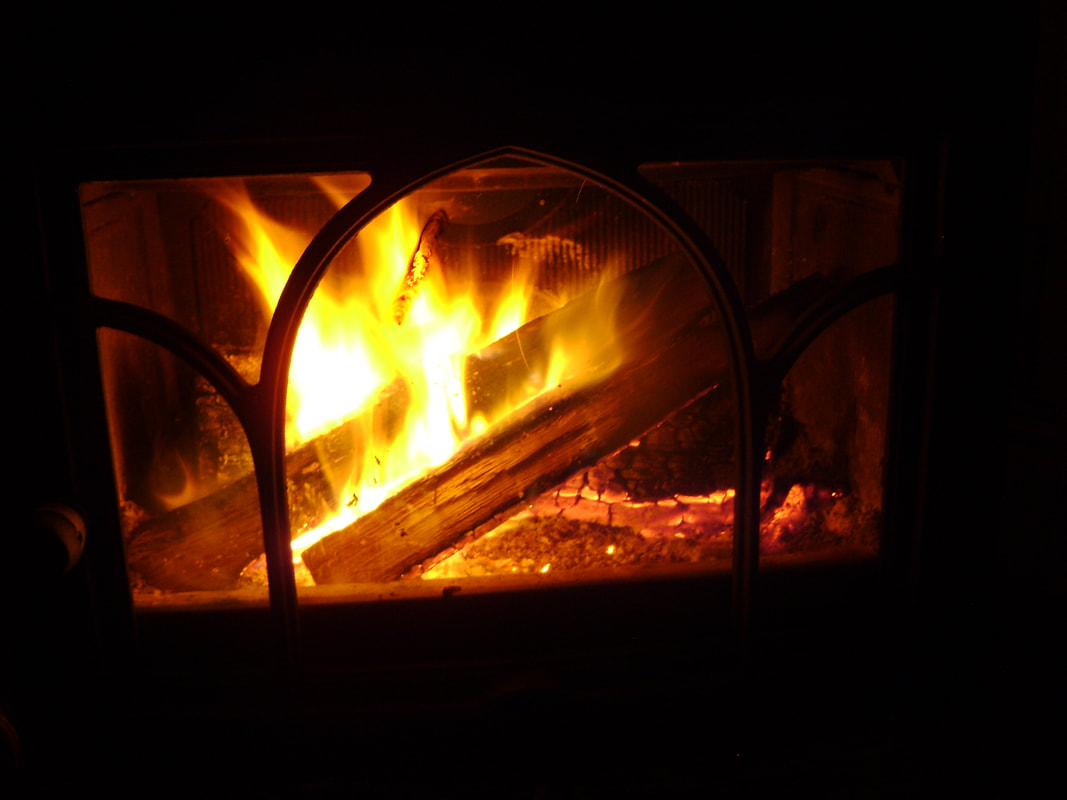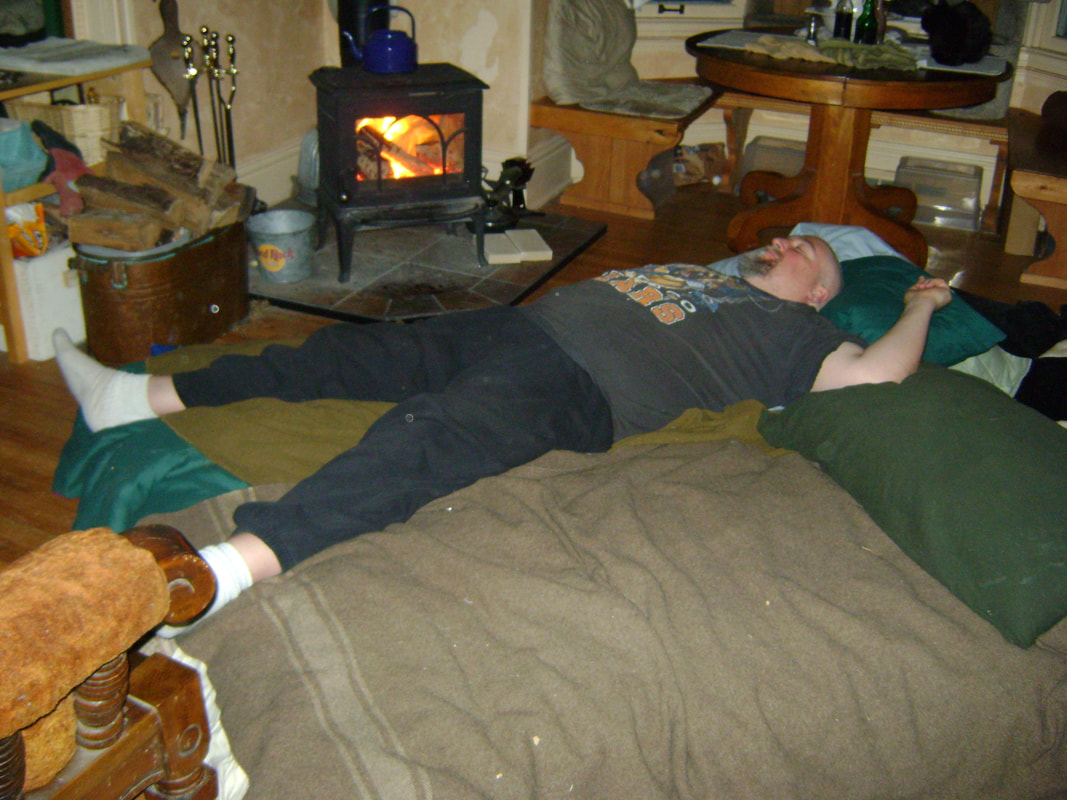| From Theresa: For our annual Winter Solstice celebration, we try to connect with Winter's darkness. On this longest night of the year, we don't turn on any lights once the sun sets (around 4 pm). We spend our evening in front of the wood stove, try to keep the Yule log burning all night, and then greet the Sun when it rises the next morning (around 7 am). This ritual of not using electrical lights lets us truly experience the dark, which is a rare occurrence in most of the USA, where we suffer from light pollution. I love our Solstice celebration, and always wish it could continue for more than one night. This year, thanks to an extended sick leave, I get to have my wish. |
| Using candles or fire light, instead of electricity, is one way you could try to connect with the darkness of Winter. | If you try to live connected to the seasons, then the darkness of Winter is a time for rest that promotes rejuvenation. It is a time to slow down and dream, to feed your soul with ideas that will help you choose what projects to work on come Spring. Accordingly, I've been reading random books and blogs that I don't usually have time for. This morning I picked up Full Moon Feast by Jessica Prentice. It's about eating seasonally and locally, using traditional cooking methods, in connection with the 13 lunar cycles. Turning to the current lunar month, I discovered she called it the Moon of Long Nights. She discusses how before the advent of electricity, we would normally have a Winter season of long nights with lots of extra sleep. She discusses other authors who believe that using electricity to stay up after the sun goes down keeps our bodies in a state of perpetual Summer, and traces this to our cravings for sugar and carbohydrates, which normally we would only have access to in the Summer. In the Winter, we would have been eating mostly protein. I like this quote: Our biology says, "Curl up in the back of the cave and gnaw on a buffalo bone, then sleep for fourteen hours," while our society says, "Run around shopping in brightly lit stores and then stay out late at a [holiday] party drinking champagne, eating truffles, and being sociable with your coworkers." |
...by depriving ourselves of long nights of winter sleep, we are depriving ourselves of a state of meditative healing and spiritual communion, a time when we have access to messages from a higher consciousness.
This was not the first I've heard of this. I've read other accounts of spiritual pursuits in some cultures that occur in the middle of the night, but it did remind me that I've always wanted to test the theory in my own life. I often wake up around 2 or 3 am, which I've read is common, and perhaps genetically encoded. It wouldn't be a problem if I had time to go back to sleep, but since I usually have to get up at 4 am to get to work, this middle of the night wakefulness has thus far only resulted in sleep deprivation for me.
| Thanks to Bear's willingness to agree to this experiment, I'm looking forward to connecting with the season, which thankfully will mean getting more sleep and perhaps finding another way to connect with the Divine. If we were starting today, it would be time to go to bed now. Instead, Bear is still out shopping for birthday treats and we haven't had dinner yet. I wonder what we will learn, or come to realize, or begin to remember from deep in our bones, when we sleep during the long, dark hours and remain active only during the light. In what ways will our body and spirits heal? |




 RSS Feed
RSS Feed